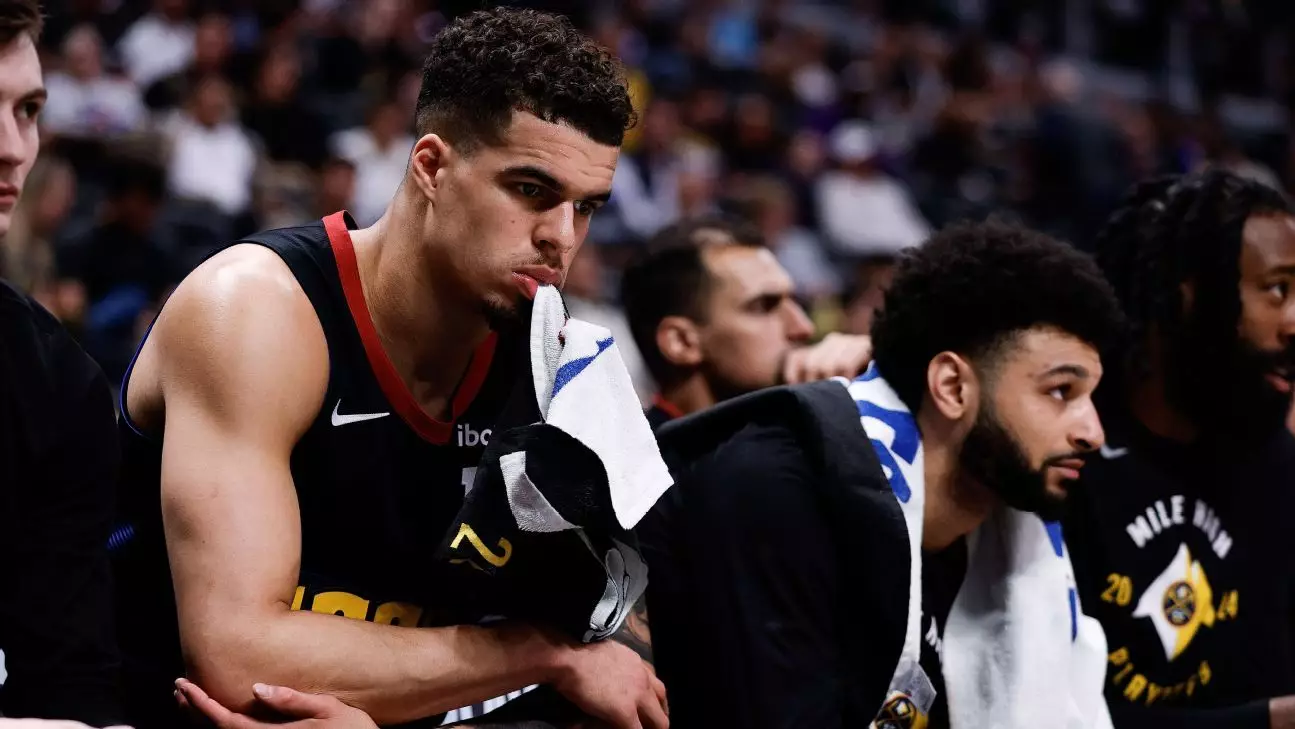In recent years, the expansion of legal sports betting has dramatically transformed the landscape of professional sports. While initially viewed as a harmless form of entertainment and a way to deepen fans’ engagement, the reality unfolding behind the scenes suggests a darker side—one that threatens the core principles of athletic integrity. Athletes, who are expected to serve as role models and symbols of fair competition, are increasingly caught in a web of financial temptation and moral compromise.
The comments from Michael Porter Jr. highlight a disturbing shift: sports, once primarily about the love of competition and national pride, are now viewed through a monetary lens. The game’s enjoyment seems secondary to the potential profit—an alarming change that distorts the essence of sportsmanship. The fact that more people are losing money than gaining underscores the inherently predatory nature of sports betting. When the primary motivation becomes profits for a few at the expense of the many, the credibility of the sport itself erodes.
The Alarming Repercussions of Gambling Scandals
The tragic example of Porter’s brother, Jontay, who was banned from the NBA for participating in a betting scheme, reveals how deeply these issues run. His admission of manipulating game statistics to benefit gamblers exposes the fragility of game integrity. The fact that players are enticed into such schemes due to financial hardship or personal pressures points to a systemic failure. When athletes from impoverished backgrounds are confronted with lucrative yet unethical opportunities, the lure of quick money becomes irresistible—placing the sport at risk of being compromised.
Porter’s candid reflection on how players may engage in dishonest acts for and with friends emphasizes the social dynamics that exacerbate the problem. It’s not merely about greed but also about survival and loyalty within communities where economic disparity prevails. This moral dilemma underscores the need to safeguard athletes from falling prey to the corrupting influence of betting.
Regulatory Gaps and the Call for Stricter Controls
Porter’s stance—that sports betting should be confined to in-person venues—and his condemnation of online betting reflect a broader concern about the current regulatory framework. The rise of digital gambling platforms has made it easier than ever for individuals to gamble anonymously, far from the watchful eyes of regulators and integrity officers. This uncontrolled environment fuels corruption and creates a breeding ground for manipulating outcomes.
More than just an ethical debate, the issue demands urgent policy intervention. Limiting betting to tightly regulated physical venues like Las Vegas could act as a fortress against the proliferation of illegal and unethical practices. Without strict oversight, the integrity of competitive sports remains vulnerable to further degradation, risking not just individual careers but the reputation of entire leagues.
By openly criticizing the current trajectory, Porter offers a vital perspective—one rooted in concern for the sport’s future. If action is not taken, the damage inflicted by unchecked sports betting could be irreversible, turning what should be a display of physical prowess and dedication into a spectacle marred by scandal and dishonor.


Leave a Reply